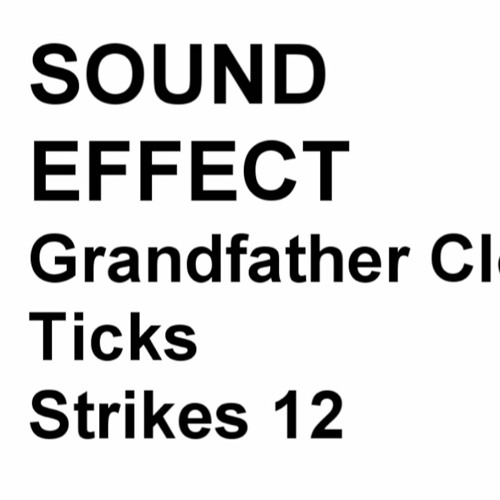

Treating sleep problems appropriately with evidence-based treatments and before they develop into a chronic issue – not relying on recommendations on TikTok – will ultimately lead to better sleep in the long term.
#TICK TOCK NOISE HOW TO#
It involves addressing thoughts and behaviours around sleep, looks at why sleep problems may have developed, and how to improve them. This therapy usually takes place with a psychologist, over four to five sessions. However, evidence-based techniques, such as cognitive behavioural therapy for insomnia, delivered by a trained health expert, is generally required to address the cause of your sleep issues. Relaxation and noise may improve your sleep. Your GP can diagnose, provide treatment options and refer you for treatment if needed. If you have persistent difficulty falling or remaining asleep, are waking too early, and are feeling unrefreshed during the day, your problems should be checked by a medical professional. When to get your sleep problems checked out Is it possible to catch up on sleep? We asked five experts Ultimately, these are the benefits most of us seek from a good night’s sleep. Auditory stimulation using pink noise may increase slow-wave sleep (deep sleep) in older people.įew studies have directly examined how improved sleep using noise benefits daytime mood and functioning. Some studies suggest white and pink noise helps us fall asleep quicker and improves sleep quality, but the quality of science is low.Īuditory stimulation may improve memory in young healthy people. However, there is some limited science about the impact of white or pink noise. Researchers have not specifically examined the impact of brown noise on sleep. So, is TikTok right? Does brown noise work? What the nap apps can really tell you about your sleep This involves low-frequency tones being played in an attempt to “boost” certain sleep stages (for instance, “deep” sleep), perhaps improving sleep quality. If noise is annoying then it will hinder sleep and be a reinforcing stimulus for interrupted sleep.Īuditory stimulation is not specific to pink, white or brown noise. In this way, noise is a reinforced stimulus for good sleep. If noise is relaxing, then pairing noise with sleep may improve the person’s ability to fall and remain asleep. In a quiet country town, the same car alarm or dog barking will sound much louder and may be more likely to wake us, than in a busy city centre.Ĭlassical conditioning is a way of learning and can explain how we respond to noise during sleep. But masking, through constant background noise, “drowns out” isolated loud noise. Our brain continues to process external sounds when we sleep and loud noise can wake us. However, if your thoughts are worrisome or strong, noise alone may not be enough to distract your busy mind.

Some research shows listening to music helps people to mentally relax, which may help sleep. Noise can redirect and distract you from excessive overthinking or worrying.

Several theories may explain why some people perceive benefits from sonic hues.


 0 kommentar(er)
0 kommentar(er)
